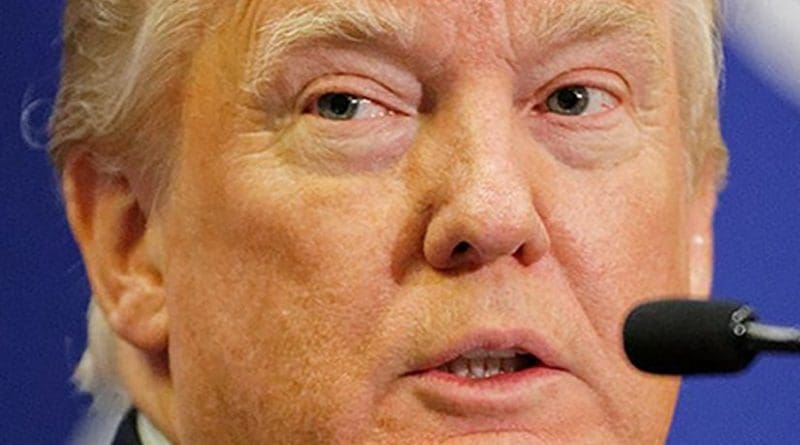Republicans Are Right: Debates Need More Substance – OpEd
By Ivan Eland
Republican candidates have justifiably complained about sensational “gotcha” debate questions from the media designed to generate conflict in order to spike ratings, thus raking in cash. Instead, time would be better spent trying to extract illuminating policy differences from among the candidates. However, this phenomenon is not new. For the past 35-years at least, the average voter has been treated to a marathon circus of meaningless campaign sound bites and media focus on sensational irrelevancies. Even a responsible voter who watches every debate in the now drawn out 18-month official campaign can come away fuzzy about the actual policy stances of the various candidates.
However, the situation has become more acute with Donald Trump as circus ringmaster. The political pros, many of whom have been astounded by Trump‘s success and believe that he is not a qualified candidate, simply miss that he is a genius of taking advantage of the current sorry state of affairs—much as Ronald Reagan did when he ran in 1980. Unfortunately, both Trump and the media are giving the American people what they really want: fire and excitement; candidates‘ positions on key issues facing the republic are “so yesterday” and “ho-hum.” (Media correspondents have long sensed such public desires and regularly have focused on the horse race in campaigns rather than on the boring details of policy debates.) Demonstrating this reality was the first Republican debate with Trump in it, which shattered all previous debate ratings and those of the lackluster Democratic debate. Busy Americans who believe, probably rationally, that the massive faraway federal government cannot be influenced by anything they do, just want to be entertained in some way during the long slog of the campaign. Trump provides that for them.
That is not to say that Trump has not been useful in breaking taboos that should have been broken long ago. If the voter is alert, some useful information does trickle out of the existent political swamp. Trump has rightly pooh-poohed Jeb Bush‘s previously unquestionable claim that his brother, George W., “kept us safe.” Trump has usefully noted that the most catastrophic terror attacks in world history by a small group happened on W‘s watch. What Trump did not say, but what is probably even more damning, is that the 9/11 commission, which investigated the matter thoroughly, concluded that the attacks were probably preventable, given all of the intelligence warnings the Bush administration had received beforehand.
Another useful conclusion that Trump has reached—again to poke at Jeb through his brother and also to pillory President Obama—is that the Middle East would have been safer if the United States had left dictators Saddam Hussein of Iraq and Muammar Gaddafi Libya in power. He alluded to the same about leaving Bashar al-Assad in power in Syria. Given the current chaos and civil war in both Iraq and Libya, this conclusion should be conventional wisdom among all of the candidates, but Trump makes news when he says it. It should also be obvious given what happened in those countries that taking out al-Assad in Syria might also be a bad idea. But of course, that would require Obama and the Republican politicians to admit that the always “evil” Vlad Putin might occasionally have a point.
Instead, to keep up with the Jones, or in this case the Ivanovs, at the negotiating table, the United States announced publicly that it will insert less than 50 Special Forces troops on the ground in Syria (it is an open secret that Special Forces raids have already occurred on Syrian soil). The casual observer might say “whoopty doo,” and it is true that they will not have much effect on the battlefield, except making U.S. airstrikes more accurate and effective. However, the war on ISIS cannot be won from the air, and the danger is that when this doesn‘t work, Obama will be pressured to insert ever more ground troops. And that‘s how the long bogs in Vietnam and Afghanistan started.
In their respective debates, Republican and Democratic candidates should have had more extensive discussions of the Syrian civil war, the growing proxy war there with Russia, and the possible American quagmire. They also should have discussed the unnecessarily provocative U.S. naval incursion in the South China Sea to show the nuclear-armed China who is boss there. Has any candidate of either party sounded the alarm over Obama‘s risky behavior that could involve the United States in a nuclear war over barren rocks off the coast of China in the Chinese sphere of influence? Or more complaints might be nice from candidates about the bipartisan agreement to again bust the federal budget caps to pay for all of this imperial recklessness overseas, not to mention fiscal profligacy at home.
But one step at a time. The revolting Republicans are laudably trying to first lessen the “gotcha” element in their debates, if not the campaign. The candidates are assuming some risk in not giving the voters the “bread and circus” to which they have become accustomed in the presidential beauty contests of recent decades. However, if they succeed in bringing more substance into presidential debates, important issues such as the above might get more air time, and the country will be better off for it.
This article was published at Huffington Post and is reprinted with permission.

